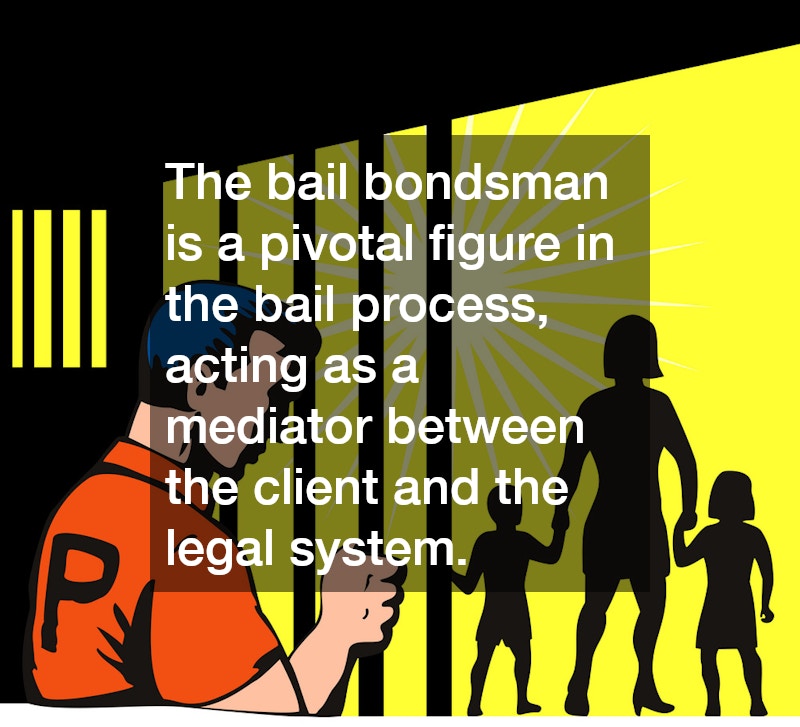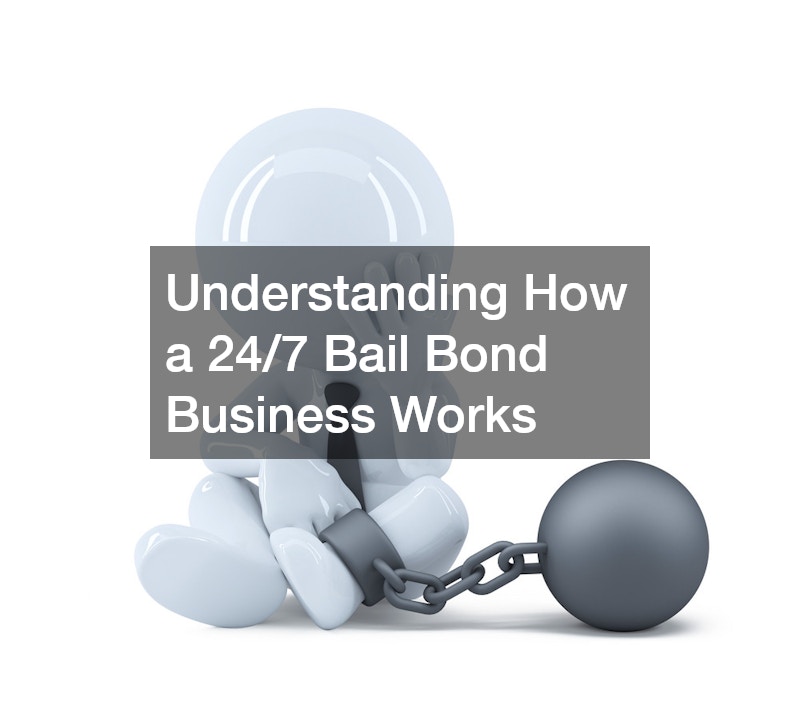In this article, we explore the intricate workings of 24/7 bail bond businesses, shedding light on their operations, services, and the role they play within the judicial system. This understanding is crucial for anyone navigating legal challenges or seeking insights into how these services operate around the clock. By delving deep into the mechanics of bail bond businesses, readers will gain clarity and confidence when faced with legal situations.
How Does a 24/7 Bail Bond Business Operate?
Navigating Legal Procedures
The legal procedures involved in securing bail can be complex and daunting. Bail bond businesses simplify the process by providing a necessary financial guarantee to the court. They act as a bridge, ensuring that individuals can secure their temporary freedom while awaiting trial.
Bail bond agencies maintain a deep understanding of the judicial system’s intricacies. By leveraging this knowledge, they guide clients through documentation and ensure adherence to legal requirements. This expertise is crucial in expediting the release of detainees.
Without 24/7 availability, many individuals would remain in custody until normal business hours resume. The round-the-clock operation of bail bonds ensures access to services when urgently needed. This constant availability reflects the industry’s commitment to serving clients at any hour.
Available Services Around the Clock
A 24/7 bail bond service guarantees that assistance is available regardless of the time, providing a lifeline for those in need. Services are tailored to cover a range of needs, from immediate release facilitation to comprehensive follow-ups. Their flexibility and adaptability make these businesses indispensable.
The seamless operation of these businesses is sustained by a dedicated team of professionals. Clients can rely on their expertise to navigate the legal system efficiently. The commitment to round-the-clock service highlights the importance placed on client accessibility and support.
The Role of the Bail Bondsman
The bail bondsman is a pivotal figure in the bail process, acting as a mediator between the client and the legal system. Their main responsibility is to secure a client’s release from custody by pledging a financial commitment. This critical role ensures that defendants have the opportunity to prepare for their defense outside of confinement.
Bail bondsmen must navigate various challenges, including assessing the risk associated with each bond. Their decision-making impacts the client’s ability to remain free while awaiting trial. By balancing risk and opportunity, they maintain the integrity and functionality of the bail system.
What are the Costs Involved with Bail Bonds?
Understanding Fees and Charges
Acquiring a bail bond involves several fees and charges, typically a percentage of the total bail amount. This non-refundable fee compensates the bail bond agency for the risk involved in the agreement. Different states may have varying regulations dictating these charges.
Potential clients must understand that fees can vary depending on the nature of the case. High-risk cases might incur higher costs due to the increased risk of flight. Such factors must be fully disclosed and agreed upon, ensuring transparency.
Collateral and Indemnity Explained
Collateral can come in various forms, from property deeds to vehicles, offered as security against the bail bond. This ensures that the bondsman is protected if the defendant fails to appear in court. Understanding collateral is vital for clients entering into agreements with bail bond agencies.
Indemnity agreements serve as additional security for bail bondsmen, often requiring cosigners. These cosigners take on the financial responsibility if the defendant defaults. The necessity of these agreements empowers bondsmen to mitigate risks effectively.
Financial Considerations for Clients
Clients must approach bail bond services with a clear understanding of their financial situation. Planning ahead and exploring financial resources available can ease the burden of sudden expenses. Knowing what to expect allows for better management of available funds during legal processes.
It’s crucial for individuals to weigh the immediate costs of securing a loved one’s release against long-term financial stability. Bail bond agencies often provide payment plans, easing the financial impact. Such options demonstrate the industry’s willingness to support clients through fiscal challenges.
By understanding the operation and costs associated with 24/7 bail bond businesses, individuals are better prepared to navigate legal challenges and make informed decisions during stressful situations. This knowledge empowers them to approach bail bond services with confidence and clarity. Awareness of these crucial aspects enables potential clients to manage the legal process with greater assurance.
.








